My Policeman: What’s it like to be an LGBTQ police officer in 2022?
As the Harry Styles-starring My Policeman arrives on Prime Video in the UK, Attitude meets four serving LGBTQ officers to find out how they manage being out at work.
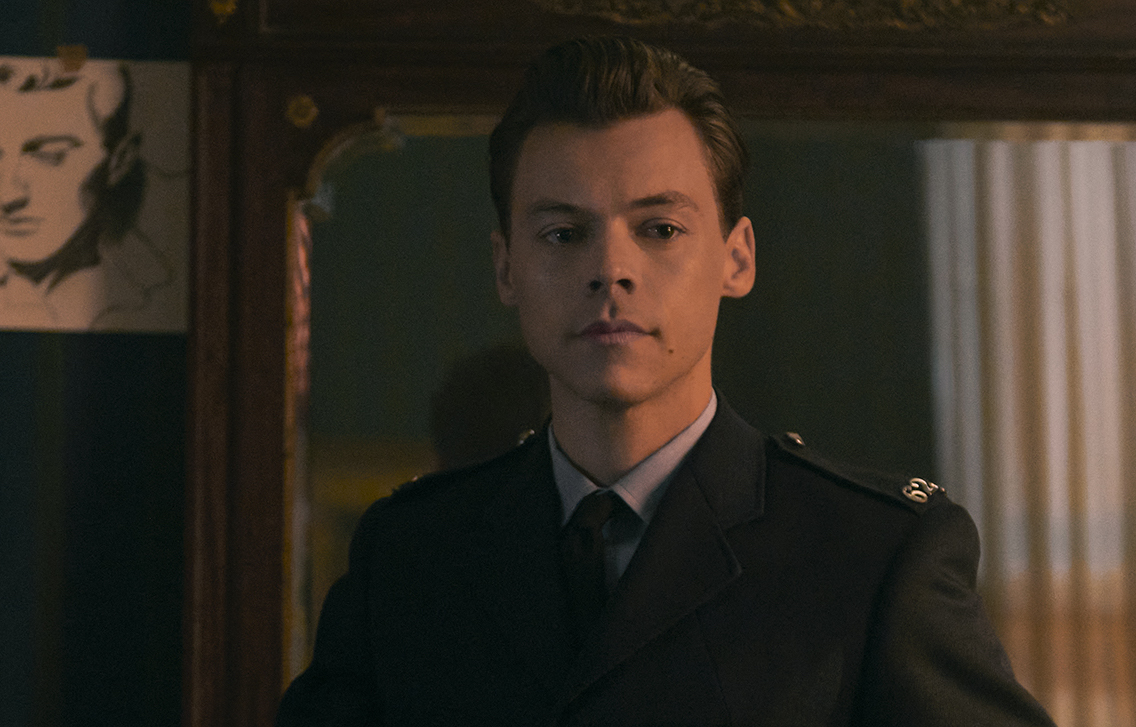
In partnership with Prime Video
My Policeman has finally arrived on Prime Video in the UK, telling the heartfelt story of 1950s Brighton policeman Tom (Harry Styles) and casting a light on the lives of LGBTQ people – and the people closest to them – who lived through the era.
Adapted from Bethan Roberts’ hit 2012 novel of the same name, the captivating period romance explores Tom’s complex relationship with wife Marion (Emma Corrin) and lover Patrick (David Dawson) against a backdrop of institutional prejudice in an era where homosexuality remained illegal in all four corners of the UK. Of course, Tom’s job within the police force only complicates matters further…
To mark the release of My Policeman, Attitude met four serving LGBTQ officers from across the UK who are steadfastly out and proud at work. As members of the National LGBT+ Police Network, which exists to empower and support LGBTQ police workers, these officers have first-hand experience of how diversity in policing is changing both forces and communities for the better. There are their stories…
Paul Bloomer, police constable, queer (he/they)
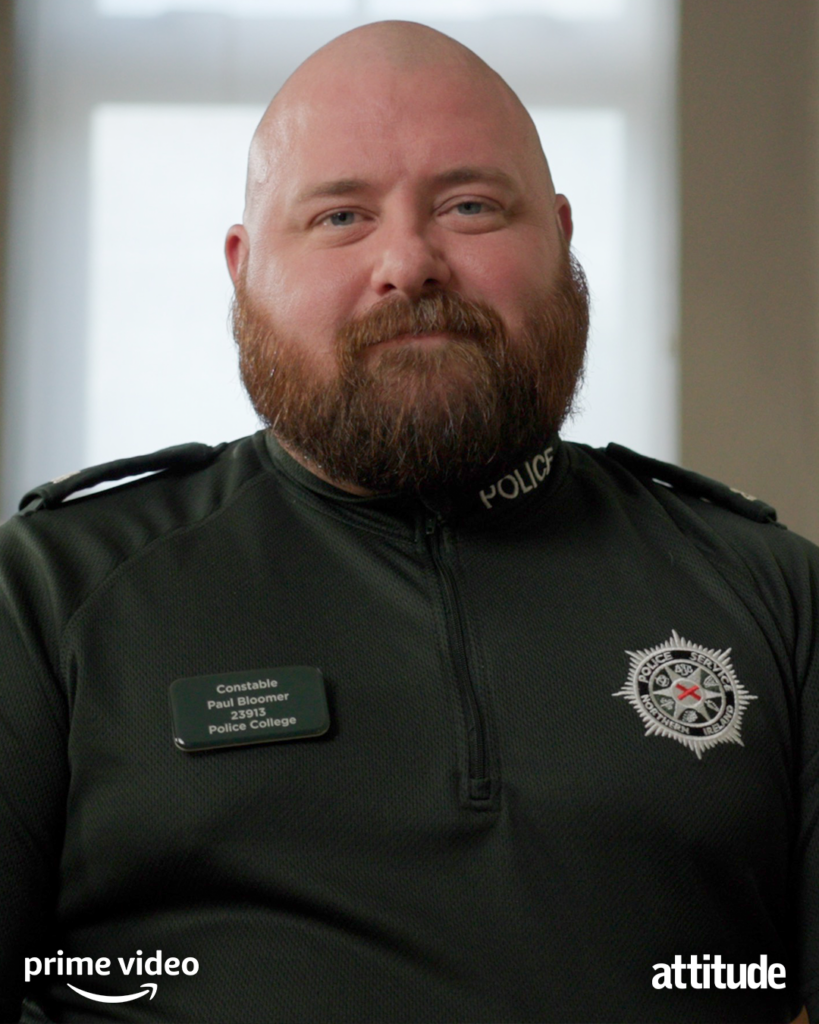
Whenever I was growing up I wanted to be a police officer but I used to think it wasn’t open to me because I was queer. It wasn’t until I moved to England and while I was there I actually met LGBT police officers, I met gay guys, who were cops. It totally changed, it totally shattered that perception that I had, and made me realise that this is something I could do, this is something that’s open to me.
Because I’m a visible LGBT officer and I’ve made that decision to be visible in the public space, yes I have encountered some negativity and I’ve encountered some hate. If anything it galvanises me because I understand that we have to stand up against hate, that we have to keep pushing forward and keep showing positive representations, because if we back down, if we pull away, the only thing that we’re allowing in that public discourse is that hate. So we need to show that positivity, we need to show that love as well.
We have to be against racism, we have to be against homophobia, biphobia and transphobia. We have to be against misogyny. We have to be actively against those things in order to make sure that we are safe for those members of the community to engage with us.
Rhian, custody sergeant, bisexual trans woman (she/her)
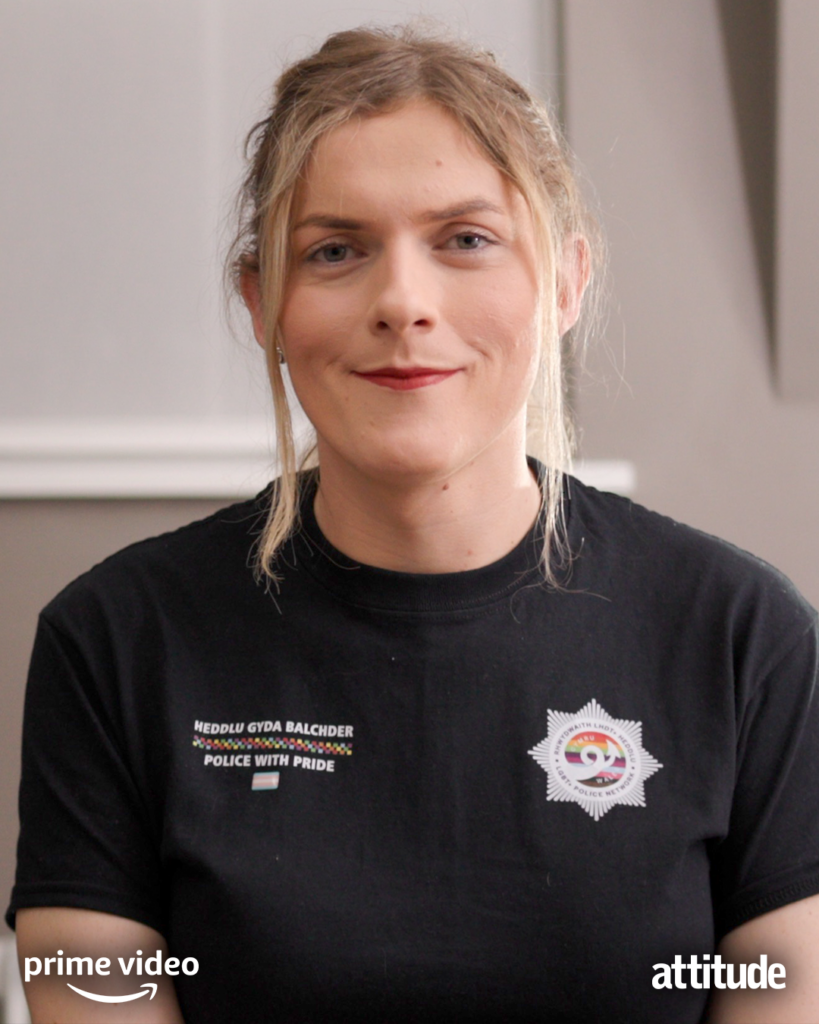
I came out to [my colleagues], I was shaking, I was very, very nervous, and the reaction that I got was just unbelievably positive. Mind-blowing, really. There’s no way I could have done it without them, they ended up being my biggest encouragers. It went from being an almost snap decision and it just jumped from that to within two weeks I’d started my transition full-time and changed my name and uniform and everything else. If it hadn’t been for that team, I may not have done it then. Who knows, I may not have done it now. But here we are.
I’ve definitely had transphobic abuse from members of the public. I’m really happy to say that it doesn’t happen often. The negative ones tended to come from drunk people, to be honest. A guy came in, who was very drunk, and just started hurling verbal abuse at me, calling me all sorts, trying to talk about my genitals and calling me a freak. It wasn’t until the blank [reporting] page had loaded in front of me and I had to type what happened and I knew I had to write it down and I just got really, really upset. It’s not something that was nice at all.
Lee Broadstock, Chief Inspector, gay (he/him)
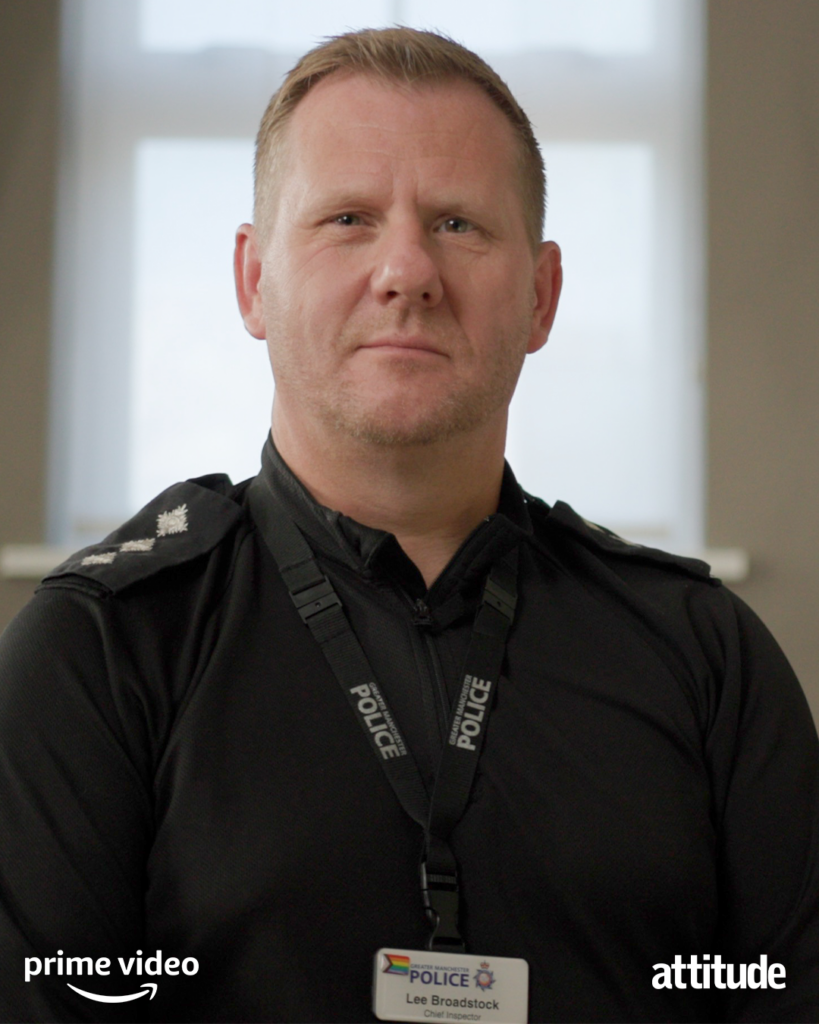
Coming out in the police, you do it all the time. The first time I did it, I wasn’t apprehensive about doing it because the cohort of colleagues I was working with were really, really good people. I’d already sensed the conversations and felt really comfortable to be in their company and to make that disclosure, so I wasn’t apprehensive about it at all.
Someone had been severely beaten up in a bar. He didn’t want to speak to the police but I was wearing a rainbow lanyard and as soon as he spotted that, it was ‘Can I speak to you?’ He’d been out with colleagues from work, disclosed to them that he was gay and they beat him up. It was shocking to see but if I hadn’t had that little bit of visibility, that connection with him, he would never have disclosed that and we would never have been able to give him the justice that he deserve.
Amy Tapping, police constable, gay (she/her)
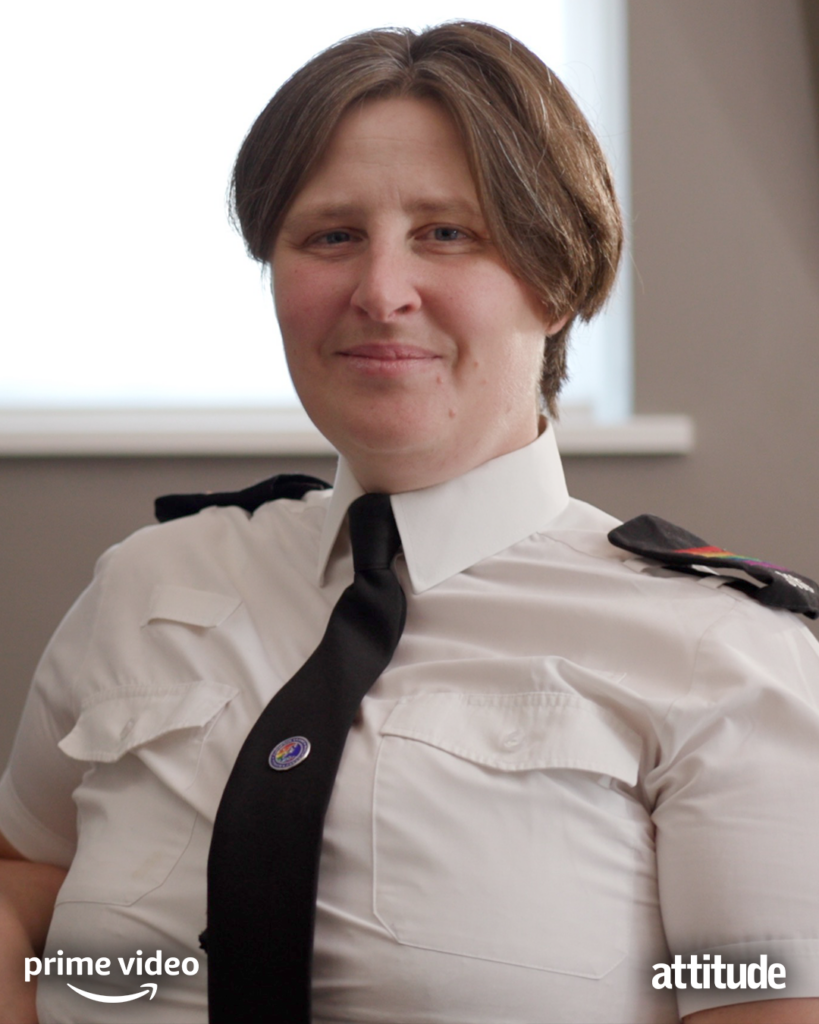
There was an occasion when I did receive homophobic abuse from a member of the public. They became really abusive towards me, calling all sorts of names. They called me a dirty lesbian. It was quite hurtful, it was quite horrible to have to deal with. I couldn’t let what she was doing affect how I treated her as an individual.
I’ve got colleagues who have just come into the organisation, so they’re very young in service: they don’t even think twice about introducing somebody as their wife, as their husband. It’s just how it is for them, and that’s great to see. It makes me proud of what I’ve done as a gay police officer and what my predecessors have done.
My Policeman is available to watch now on Prime Video.
